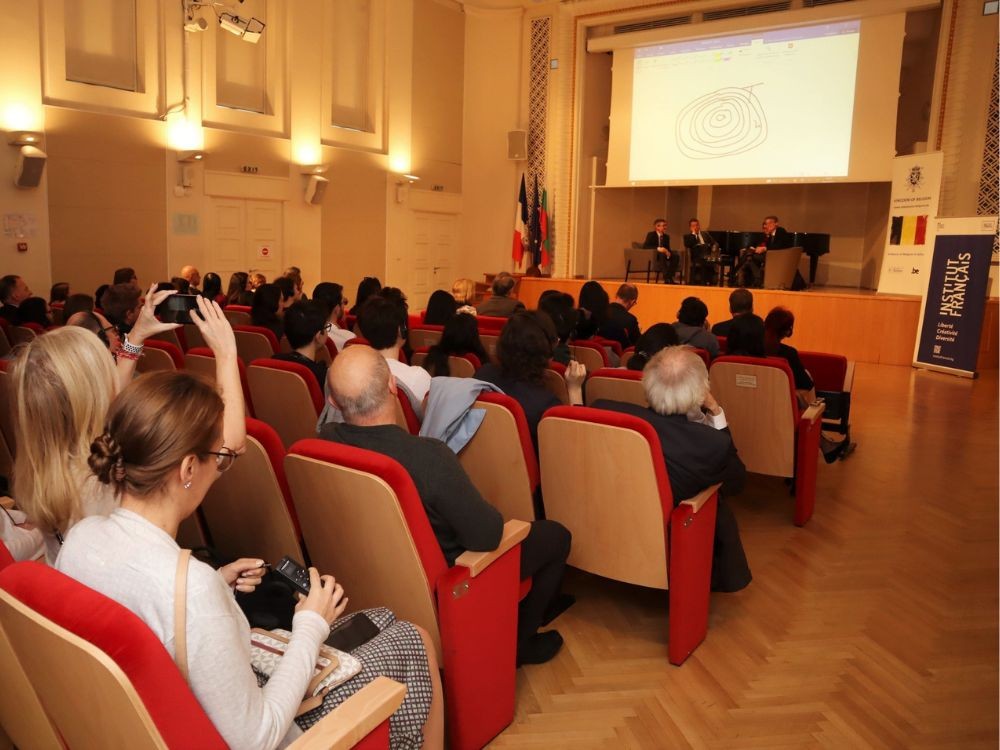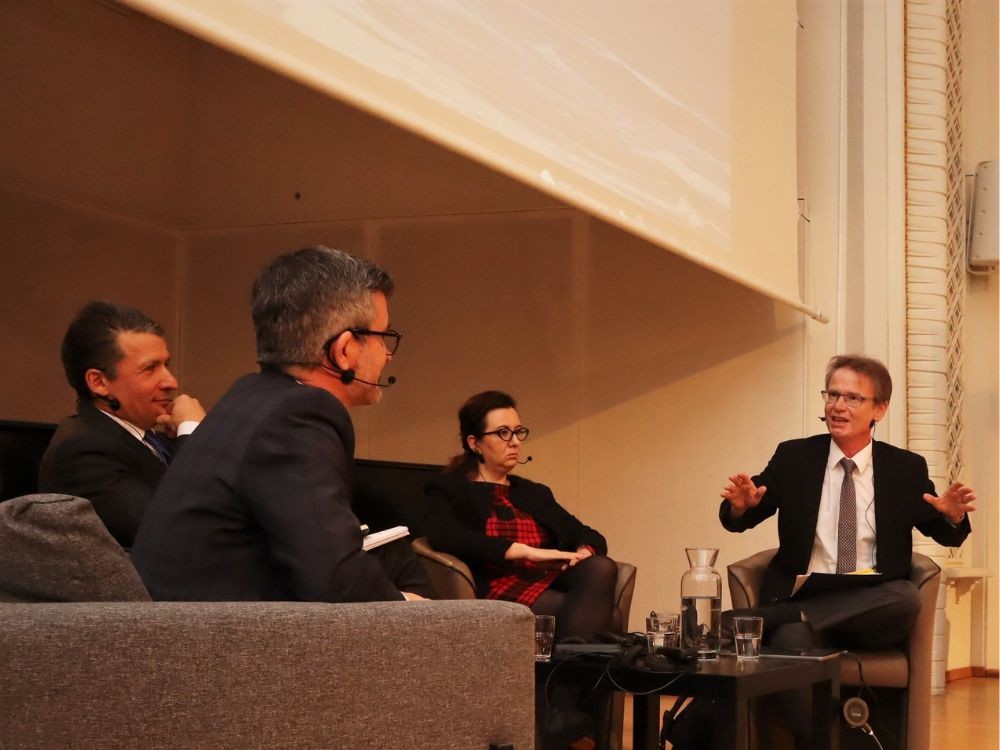We should be optimistic about the unity of Europe, says Loïc Grard, Professor of public law at the University of Bordeaux in an interview with Radio Bulgaria. Prof. Grard was in Bulgaria to attend the conference on “European construction: challenges and future prospects”, organized during Francophonie month by the French Cultural Institute in Sofia.
Since its inception in the 1950s, the European project has been the pursuit of uniting in our common home – Europe. That is precisely what the crack-up of the Eastern bloc in the 1990s led to – less than 15 years later the countries of the Eastern bloc had become members of the European Union. “Today we are seeing another crack-up, but we should be optimistic that the crisis in Ukraine is going to speed up the accession of the Balkans, which on its part will give an impetus to Ukraine’s membership,” Prof. Grard explains. “Whether Europe is going to move at the same speed is another matter. We can be one family without advancing at the same speed.”
Europe has always lived with risks and there will always be risks along its way – migrant, environmental, the current geopolitical crisis. The former President of the European Commission Jean-Claude Juncker even talks of “polycrisis”, Professor Grard goes on to say. It is important, he says, that the response be a common response, as was the case with the Greek crisis or with Covid-19: “Europe is not the problem, it is the solution,” he says.

How does the discordance between Bulgaria and North Macedonia appear in this European context? Loïc Grard makes a comparison with the controversy surrounding Northern Ireland, rekindled by Brexit:
“You have a protestant minority in a catholic country which says it belongs in e neighbouring protestant country. The problem between Bulgaria and North Macedonia, in essence, the same. So, if the two countries are in one common home, without any economic frontiers, if North Macedonia enters the EU, that would resolve more problems than it would create.”
Another participant in the debate, Ildiko Otova who lectures at New Bulgarian University, gives the answer to the question what being a European citizen means:
“Being a European citizen means being a citizen, and that means being active,” she says in an interview with Radio Bulgaria’s Maria Stoeva. “Citizenship has for a long time been localized outside national state boundaries and is detached from this purely legal connection. It means activism and commitment. /…/ It means having a position, going out to protest, to sign a petition or just to have your say. That is what being a citizen means, and that is how the European Union is built. It is built by its citizens and outside of the institutions.”
Political rhetoric, including in Bulgaria, kills politics, she says, and “the role of media in touting a negative kind of rhetoric is significant.”
According to Jean Crombois from the Department of Political Science and European Studies at the American University in Bulgaria, membership of the EU has a symbolic side to it. Most of his students who are interested in the EU do not have European citizenship, whereas the Bulgarian students take it for granted. “We have many students from Kosovo, Albania, North Macedonia, Georgia, Moldova – they crave for Europe which we are denying them.”

What lends meaning to Europe in our day?
“The new narrative is the new story of Europe,” Prof. Loïc Grard explains. “The old narrative is of a Europe protecting us from the barbarism of the 20th century which will never be repeated – that is what everyone believes, and maybe they are wrong. The idea remains the same – a Europe that protects us. In our day the threat, the common risk is the climate risk. Obviously it is a risk that is in the distant future, though maybe not so distant.” The only efficient response is a common response: “if we respond as 500 million people, we could impact the whole world, so, a strong Europe protects,” Prof. Grard says.
Photos: French Institute in Bulgaria
Every Bulgarian school abroad has its own story, and that of the Rodna Stryaha Bulgarian school in Cyprus began in 2015. Its foundations are built on the dream of a Bulgarian teacher - when one day Bulgarian children decide to return to their..
President Rumen Radev will today attend the opening ceremony of Forest Week in front of St Alexander Nevsky Cathedral. The theme of this year's celebrations is "A century of eternal creation, preservation and care!" This year marks the 100th..
For 100 years, foresters in Bulgaria have been organizing Forest Week. A concert entitled “A century of eternity” on 7 April will give the official start to the initiative dedicated to the planet’s lungs. And though it has been a century since..
For 100 years, foresters in Bulgaria have been organizing Forest Week. A concert entitled “A century of eternity” on 7 April will give the official..
President Rumen Radev will today attend the opening ceremony of Forest Week in front of St Alexander Nevsky Cathedral. The theme of this year's..
Every Bulgarian school abroad has its own story, and that of the Rodna Stryaha Bulgarian school in Cyprus began in 2015. Its foundations are built on..

+359 2 9336 661
